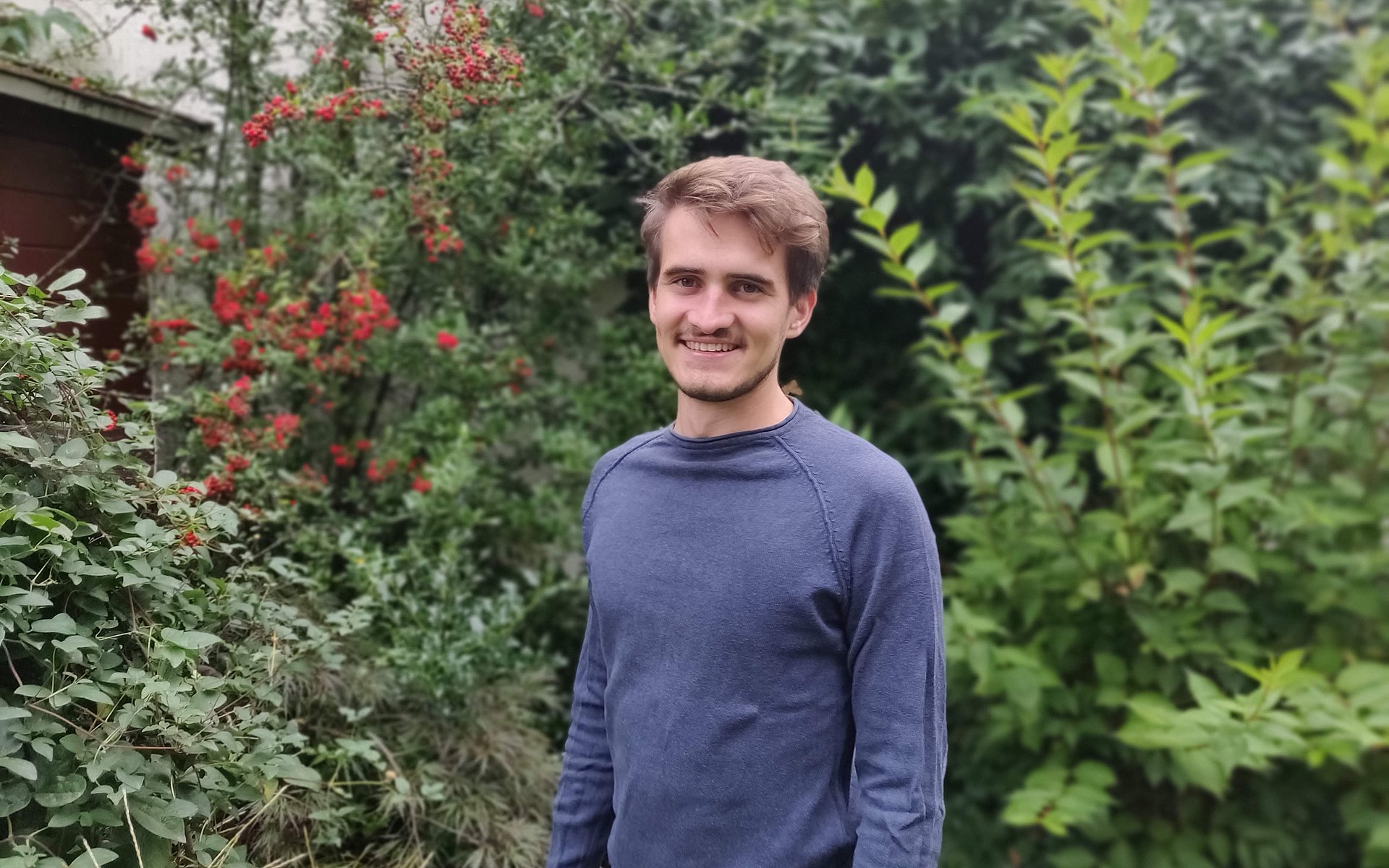Press releases
TUM student Benedict Scheu talks about his experiences with taking module courses in philosophy at the HFPH
“A natural extension of my studies”

Dear Mr. Scheu, you are actually studying at the TUM School of Management.
Yes, I'm in my fourth semester of the Master's in Management & Technology. The focus on just one particular discipline, one scientific field, has always seemed a bit narrow to me. I find business issues very fascinating, but I'm also interested in new technologies. In my master's program, I can combine these two in the best possible way: I get an excellent management education, but at the same time I also gain profound insights into other fields, in my case mainly chemistry and industrial engineering.
With the “Modulstudien Philosophie”, module courses at the Munich School of Philosophy, you then added a third dimension to your studies. Why did you decide to take courses at the HFPH?
The addition of perspectives from the humanities seemed like a natural extension of my studies, where I'm primarily concerned with natural science and empirical research methodology. I find it very exciting to see how these tools can be used to find out more about our world, how to confront problems, and how to contribute to the further development of our society.
But of course, not all questions can be answered with this toolkit. Especially when it comes to very fundamental things, our lives, our actions as human beings, other approaches are needed. In the module courses, I wanted to take a philosophical approach to these questions.
Which courses did you take?
I took a course on philosophical anthropology. Every semester, several courses are offered in the field of systematic philosophy, including anthropology. My main goal was to get an introduction to the philosophical methodology and approach to questions.
Have your expectations been met?
Absolutely. I have received a lot of impulses here, on the one hand to refine my own argumentation and to substantiate claims cogently and consistently, and on the other hand to critically analyze the arguments of others and to recognize weak points. The level that the students of the HFPH have here is really remarkable. I was impressed by the precision and clear logic with which arguments can be set up and defended. The oral exams are correspondingly challenging. They are very different from many of the exams I have at TUM.
It is also extremely important to me that ethical topics are given enough space However, it seems to me that they are sometimes still not sufficiently considered. That makes such interdisciplinary courses all the more important.
So would you recommend the “Modulstudien Philosophie” to your fellow students?
For those interested in rigorous argumentation, critical reflection on the ethical and philosophical problems associated with our fields of study, and a basic education in the humanities, the “Modulstudien” are definitely a great start.
Registration for the module courses in philosophy for the winter semester 2022/23 is open between Sept. 29 and Oct. 13, 2022. All information can be found at www.hfph.de/studieninteressierte/modulstudien-philosophie-tum (German).
Technical University of Munich
- Konstantin Götschel
- goetschel@zv.tum.de